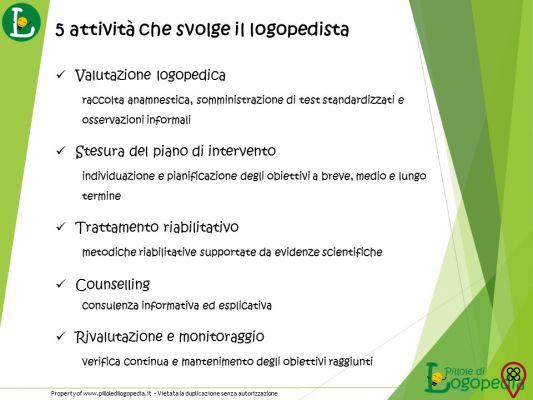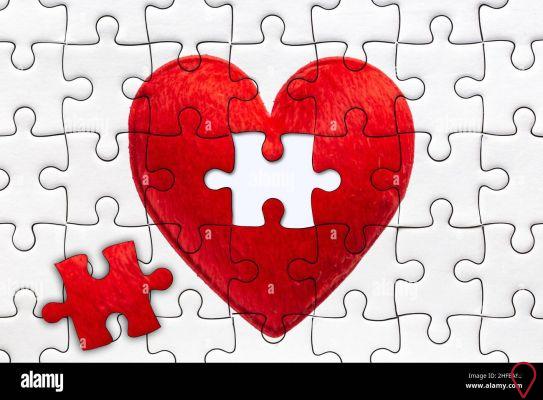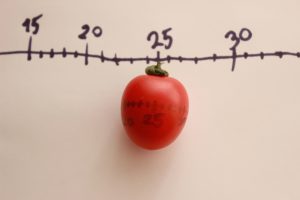O Attention Deficit Hyperactivity Disorder (ADHD) or Attention Deficit Disorder (ADD) It is a neurobiological disorder, of genetic origin. It is a psychiatric disorder caused by small changes in the frontal region and its connections with other regions of the brain, a sector responsible for inhibiting behavior and attention. Recognized by the World Health Organization (WHO), it affects between 3 to 5% of school-age children and approximately 60% of them will remain with the disorder as adults. During childhood, the highest incidence is in males, however, in adulthood there is a balance.
There is no controversy about the existence of the disorder, however, many people believe that ADHD does not exist, being a mere invention of the pharmaceutical industry in order to make a profit.
The causes of ADHD are still unknown, however, American research carried out by the Center for Applied Genetics at the Children's Hospital of Philadelphia, discovered a genetic flaw in the brain of people with the disorder. The study published in the digital version of the journal Nature Genetics is a relevant step towards the development of drugs that can treat these failures. According to Hakon Hakonarson, study coordinator and director of the Center for Applied Genetics at the Children's Hospital of Philadelphia, 10% of patients surveyed have such changes. Hakonarson also highlights that the discovered genes target the brain neurotransmitter system involved in ADHD.
Scientists selected 1000 children. They analyzed their genome and compared it with the genomes of 4100 children without the disorder. The goal was to look for copy number variations (CNVs), which are DNA sequence deletions, or duplications. Four genes were identified with a significant amount of CNVs in children with ADHD. These genes belong to the glutamate receptor gene family, whose strongest result is in the GMR5 gene. Glutamate is a neurotransmitter, a protein that sends signals between neurons. “Members of the GMR gene family, along with the genes they interact with, affect nerve transmission, neuron formation and interconnections in the brain. So, the fact that children with ADHD are more susceptible to having alterations in these genes reinforces the evidence that GMR is important in ADHD”, explains Hakonarson.
Other factors related to ADHD
According to the Spanish Attention Deficit Association (ABDA), some studies link alcoholic mothers and children with inattention and hyperactivity problems. But, according to the institution, the research does not show a cause and effect relationship. ABDA points out studies that associate women with childbirth problems and children with ADHD, but the causal relationship is also unclear.
Diagnosis

The starting point for the diagnosis is a questionnaire called ASRS-18. Developed by researchers in collaboration with the World Health Organization, it analyzes possible primary symptoms of the disorder. The diagnosis can only be confirmed after an interview with a psychiatrist or neurologist. The questionnaire is divided into two parts, both with nine questions each. Check the questions:
Part A
- How often do you make inattentive mistakes when you have to work on a boring or difficult project?
- How often do you have trouble sustaining attention when you're doing boring or repetitive work?
- How often do you have trouble focusing on what people say, even when they're talking to you directly?
- How often do you leave a project half way through after you've already done the hardest parts?
- How often do you have difficulty doing work that requires organization?
- When you need to do something that requires a lot of concentration, how often do you avoid or delay getting started?
- How often do you misplace things or have trouble finding things at home or work?
- How often are you distracted by activities or noise around you?
- How often do you have trouble remembering appointments or obligations?
Part B
- How often are you fidgeting in your chair or shaking your hands or feet when you have to sit for a long time?
- How often do you get up from your chair in meetings or in other situations where you should be sitting?
- How often do you feel restless or agitated?
- How often do you find it difficult to settle down and relax when you have free time to yourself?
- How often do you feel overly active and needing to do things, as if you had “a motor running”?
- How often do you find yourself talking too much in social situations?
- When you're talking, how often do you find yourself finishing people's sentences before they do?
- How often do you find it difficult to wait in situations where everyone has a turn?
- How often do you interrupt others when they are busy?
Bed wetting, poor school performance associated with lack of attention, problems with peer relationships, are elements that need to be taken into account in the diagnosis in adults. Physical examinations, in order to rule out the possibility of clinical or neurological disorders, neuropsychological tests (eg attention, intelligence) and specific MRI are not ruled out.
Symptoms

Frequent delays: adults have great difficulty meeting schedules and commitments. In the work environment, they put off tasks that they consider uninteresting or unpleasant, hindering their productivity, and consequently that of the team, reports psychotherapist Evelyn Vinocur;
Lack of organization: ADHD sufferers start one task before finishing the first one. The difficulty in establishing priorities brings the feeling of lack of time;
Depression and stress: in adults, these symptoms are linked to a very hectic work routine. Depression comes from the inability to complete tasks and the negative impression it gives to colleagues. This frustration manifests itself physically, through headaches and back muscles, says psychologist Adriana Araújo;
Problems to address: adults with ADHD have trouble concentrating. Driving is a difficult task, because the radio and cell phone distract attention. People with attention deficit do not need to stop driving, but they should consult a psychiatrist for guidance on how to act.
Communication difficulty: the difficulty of concentration makes people with ADHD afraid to follow and participate in a conversation. Therefore, they interrupt others, make inopportune comments and speak too loudly;
Difficulty maintaining relationships: mood swings and difficulty in following rules interfere with socializing. According to psychotherapist Evelyn Vinocur, people with ADHD are bossy and can't keep agreements. The Spanish Attention Deficit Association reports that 25% of adults with ADHD may have serious antisocial behavior problems, bringing patients loneliness and isolation, fertile ground for depression.
Behavior

According to psychotherapist Evelyn Vinocur, a Minha Vida specialist and member of the Spanish Attention Deficit Association, ADHD is a chronic condition of inattention, hyperactivity and impulsivity. Approximately 30% of men with ADHD are immature and sensitive. They often act childishly, to the point that the partner has the feeling that they are dealing with a child and not a man. Aggressive behavior is still observed. Men with attention deficit disorder are sometimes unable to control their anger and act disproportionately to the situation.
Individuals with ADHD tend to lose interest in routine, which makes them want to seek out more stimulating activities and people. This sexual boredom felt by people with the disorder is one of the causes of the high divorce rates in couples where one of the partners has ADHD. The disorder causes self-esteem problems, as the individual cannot perform his/her professional activities satisfactorily, and the difficulty in establishing intimacy makes patients isolate themselves from friends, relatives and romantic partners.
Treatment
Contrary to what they say, medications for the treatment of ADHD do not numb, they do not make patients look like “zombies”. There are several drug options to treat the disorder with or without hyperactivity, with solid evidence of effectiveness. Psychostimulants are often the first choice in treatment. According to the National Institute of Health (NIH), more than 170 surveys have been carried out with more than 6000 patients and 70% of them have responded positively using only one stimulant, a highly satisfactory result. Psychostimulants, in addition to the classic symptoms of Attention Deficit Disorder with or without Hyperactivity (inattention, impulsivity and hyperactivity), also act in cases of anxiety, depression, outbursts of anger and impulsive behavior.
You may also like
- Find out how ADHD can affect a relationship
- See how functional nutrition can help treat ADHD
- Beware of Ritalin's Dangers: The Drug That Threatens the Future
Among the psychostimulants used in the treatment of ADHD are Methylphenidate (Ritalin or Concerta), Pemoline (Cylert), and amphetamines (Dexedrine, Adderall) are not available in España. In some situations modafinil (Stavigile) may be used.
Living with ADHD
Although it is a disorder that interferes with social and professional life, with medication and the application of some measures, people with ADHD can have a better quality of life. See what measures to take for each symptom:
Stress and mood swings
- Sleep: dSleeping poorly accentuates the symptoms of ADHD. Don't take caffeine before bed and avoid physical activity an hour before going to bed;
- Correct feeding: small portions throughout the day, little sugar, less carbohydrates and more proteins help to reduce symptoms;
- Physical activity: relieves stress, calms the mind, improves mood, in addition to expending the accumulation of energy;
Lack of organization
- Have an agenda: write down your schedules and appointments. Organize the next day's routine at night;
- Make lists: use post-it notes (sticky notepads) to help organize your tasks. Paste them on the computer;
- Archiving systems: use folders with dividers to file your documents (recipes, bills, application forms, etc.);
- Establish schedules: Set schedules for your activities. Taking a few minutes to read and respond to emails prevents accessing your account every five minutes.
managing time
- Clock: wrist, cell phone or computer, the important thing is to always be in sight. Every time you start an activity, write down the time;
- Arrive early: write down your appointment times 15 minutes in advance. For example, if an appointment is at 11 am, make a note in the diary that it is at 10:30 am;
- One thing at a time: if you are in a large project, split it into several parts;
- speak no: impulsiveness causes the adult with ADHD to accept several activities at the same time and not finish any. Before accepting any task, check your calendar to see if there is time for it.

No symptom presented here, even in isolation, can be ignored. If you notice behavior similar to those reported in this article, take your family member or friend to a psychologist or psychiatrist. With a rigorous evaluation, administration of medication, psychotherapy sessions and family support, the adult with the attention deficit is able to overcome the limitations imposed by aggression, anxiety attacks, communication difficulties, among many others responsible for the drop in professional productivity and lack of quality in relationships with family, friends and romantic partners.
It is also the role of the psychologist or psychiatrist to guide the family. The understanding of parents and siblings about the disorder helps those who suffer from ADHD to change habits. An adult with attention deficit will be more effective in the task of learning to manage time, set priorities, say no and control their impulsiveness with the support of their family members.
Check out what you, father, mother or brother can do effectively to overcome ADHD:
- To converse;
- Reinforce qualities, always praise;
- Instead of demanding results, demand commitment;
- Set limits and always remember them;
- Speak face to face, eye contact is very important, as it conveys security;
- Warn inappropriate behavior, pointing out which is correct and why;
- Schedule activities outside the home. Strolling in the park, going to the movies;
- Stimulate recovery and make friends;
- Stimulate independence;
- Establish rest periods with the patient between professional and/or school activities.

























